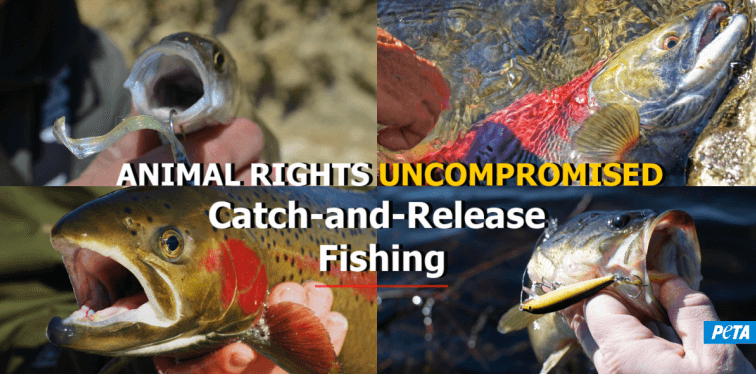Fishing is one of the oldest pastimes known to humanity, often heralded as a quintessential aspect of culture and tradition. For many, it evokes nostalgic memories of serene lakes, bubbling rivers, and idyllic moments spent in nature. Yet beneath this veneer of tranquility lies a contentious debate that has sparked passionate discussions across the globe: Is fishing a benign recreational activity, or does it constitute a form of animal cruelty? This question necessitates a deeper investigation into both the ethical considerations surrounding fishing practices and the cultural significance that fishing holds for communities worldwide.
The tradition of fishing can be traced back thousands of years. Early civilizations depended on fish as a vital food source, and as such, fishing techniques evolved over time, becoming intricately woven into the fabric of many cultures. In various indigenous communities, fishing is not merely a means to an end; it embodies a spiritual connection to the land and the waters. Rituals, stories, and gatherings often revolve around fishing, fostering a sense of community and reverence for the natural world. Fishing, in this context, signifies a harmonious relationship between humans and nature.
However, as societies have transformed and industrialization has taken precedence, fishing practices have also evolved, often leading to conflicts with ethical considerations. Contemporary fishing techniques, particularly commercial practices, raise significant concerns regarding the treatment of marine life. The terminology associated with fishing practices—such as “catch and release”—often ignites debates about animal rights. Advocates of animal welfare argue that even in catch-and-release scenarios, fish endure substantial suffering, including physical injury, stress, and the risk of death from asphyxiation or predation once returned to the water. Thus, proponents of more stringent ethical standards claim that fishing, as it is commonly practiced today, can indeed be seen as a form of animal cruelty.
An essential component of the debate is the notion of sentience among fish. Scientific research suggests that fish possess complex nervous systems and exhibit behaviors indicative of pain perception. They can react to threats and experiences that may cause distress. This evidence prompts a critical reevaluation of traditional beliefs about fish as mere commodities. The conception of fish as sentient beings forces society to confront uncomfortable truths regarding the impact of fishing practices on their welfare.
Despite these ethical implications, there remains an enduring fascination with fishing that transcends its potential for harm. This enchantment can be attributed, in part, to the psychological benefits associated with the activity. The act of fishing often promotes mindfulness, relaxation, and a sense of achievement. Many find solace in the rhythmic casting and reeling, while others thrive on the challenge of catching elusive species. Indeed, for numerous enthusiasts, fishing serves as an escape from the frenetic pace of modern life, providing an opportunity to connect with nature in a meaningful way.
Moreover, the fishing community actively engages in conservation efforts, emphasizing sustainability and responsible practices. Organizations committed to safeguarding aquatic ecosystems are proliferating, advocating for catch limits, habitat preservation, and the reduction of bycatch. Such initiatives demonstrate the potential for fishing to coexist with environmental stewardship, allowing communities to enjoy the benefits of their cultural heritage while promoting the health of aquatic habitats.
Nonetheless, the ethical complexities associated with fishing cannot be overlooked. Discourses surrounding fishing often reveal deeper societal values and assumptions about our relationship with nonhuman animals. The continued acceptance of fishing practices often reflects a broader disconnect—one in which animals are perceived as commodities rather than sentient beings deserving of ethical consideration. Addressing these disconnects requires an honest reckoning with longstanding cultural norms and an evaluation of what it means to coexist with other species.
Additionally, leisure fishing is often romanticized as a wholesome family activity, yet it is imperative to recognize that, within this narrative, a hierarchy remains. While some advocate for responsible fishing practices, others engage in practices that prioritize sport over ethical considerations. This raises questions about the extent to which individuals are willing to confront the implications of their leisure choices. Could a commitment to more compassionate practices ultimately enhance the fishing experience itself, allowing individuals to appreciate the beauty of nature without inflicting harm upon its inhabitants?
In conclusion, the inquiry into whether fishing constitutes animal cruelty or a traditional skill necessitates not just an examination of practices but also a profound introspection of societal values. Fishing can serve as an enriching tradition, embodying cultural practices that promote community and connection to nature. However, it also bears the weight of ethical implications that cannot be easily dismissed. The conversation surrounding fishing must evolve, encouraging passionate debates that honor the past while advocating for the present and future welfare of all sentient beings. By striving towards responsible practices and fostering a deeper understanding of our interconnectedness with the natural world, society can navigate these complexities and perhaps find a path that honors both tradition and compassion.








